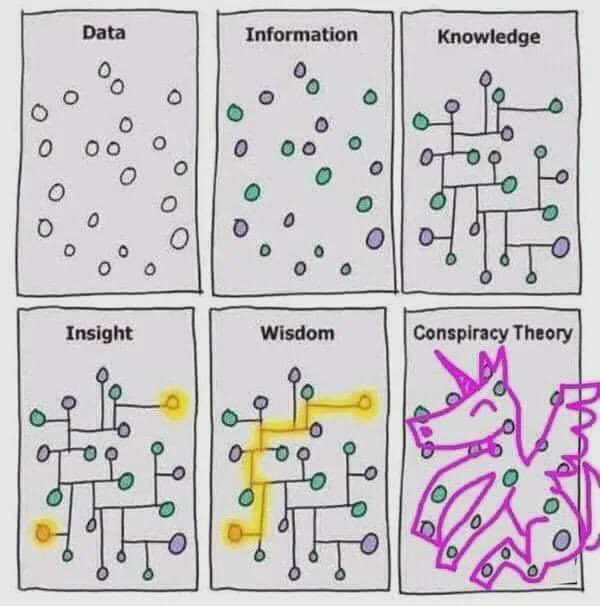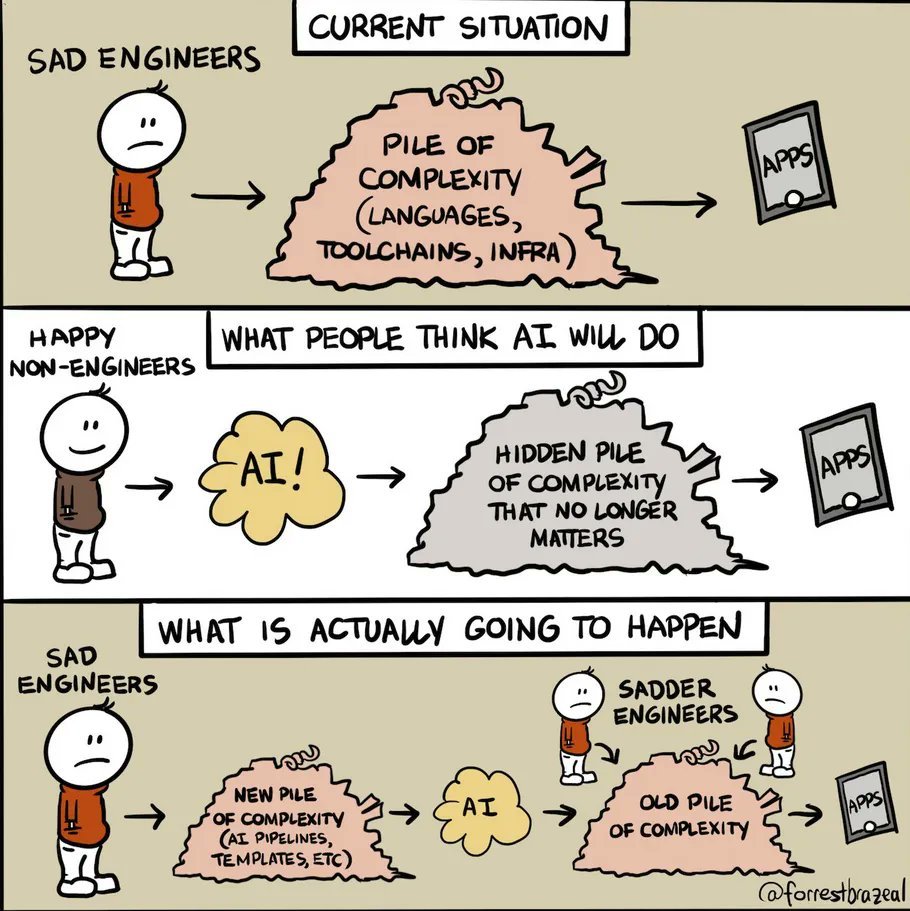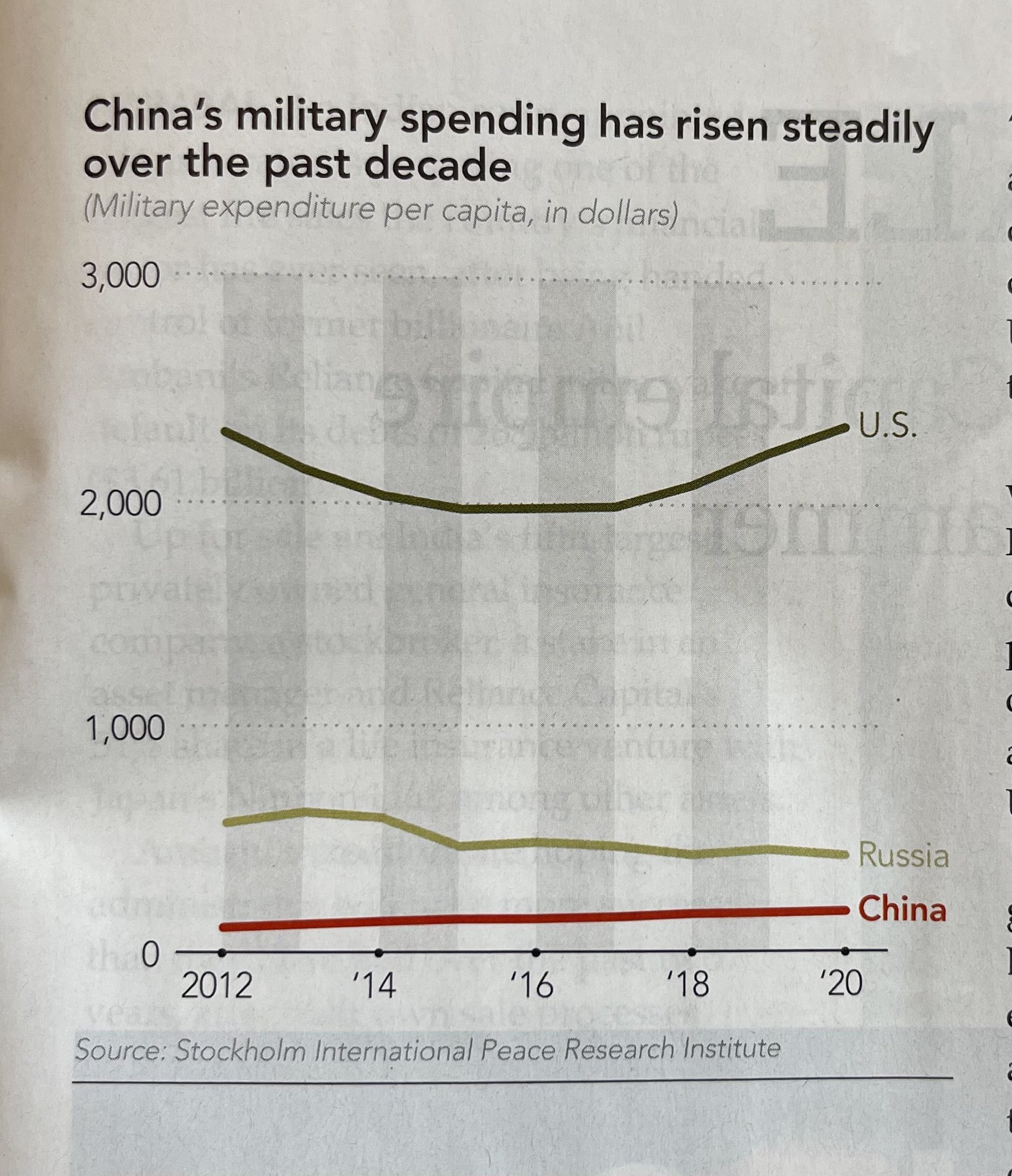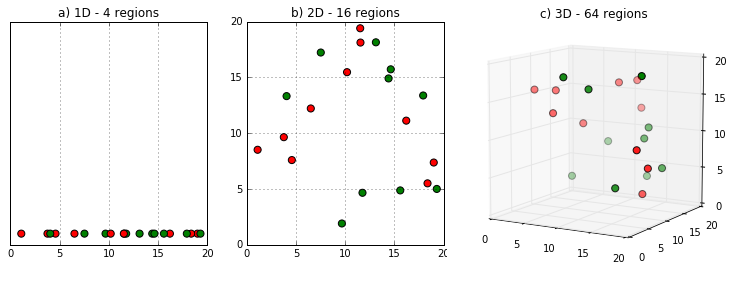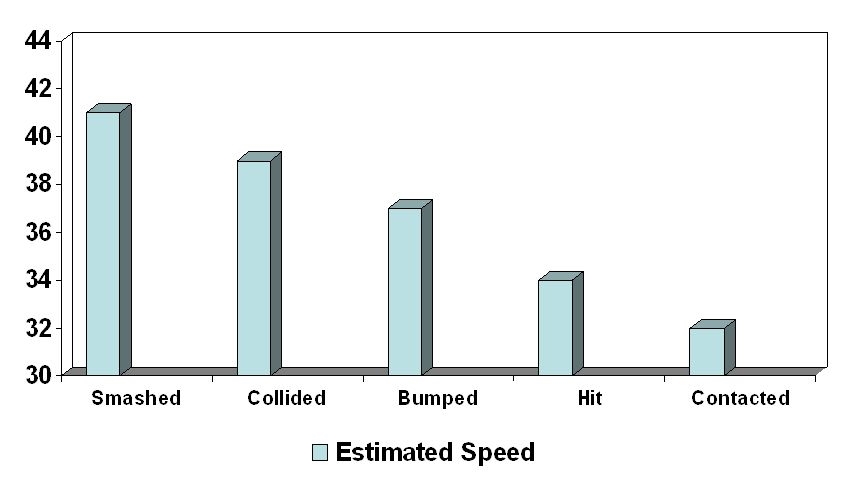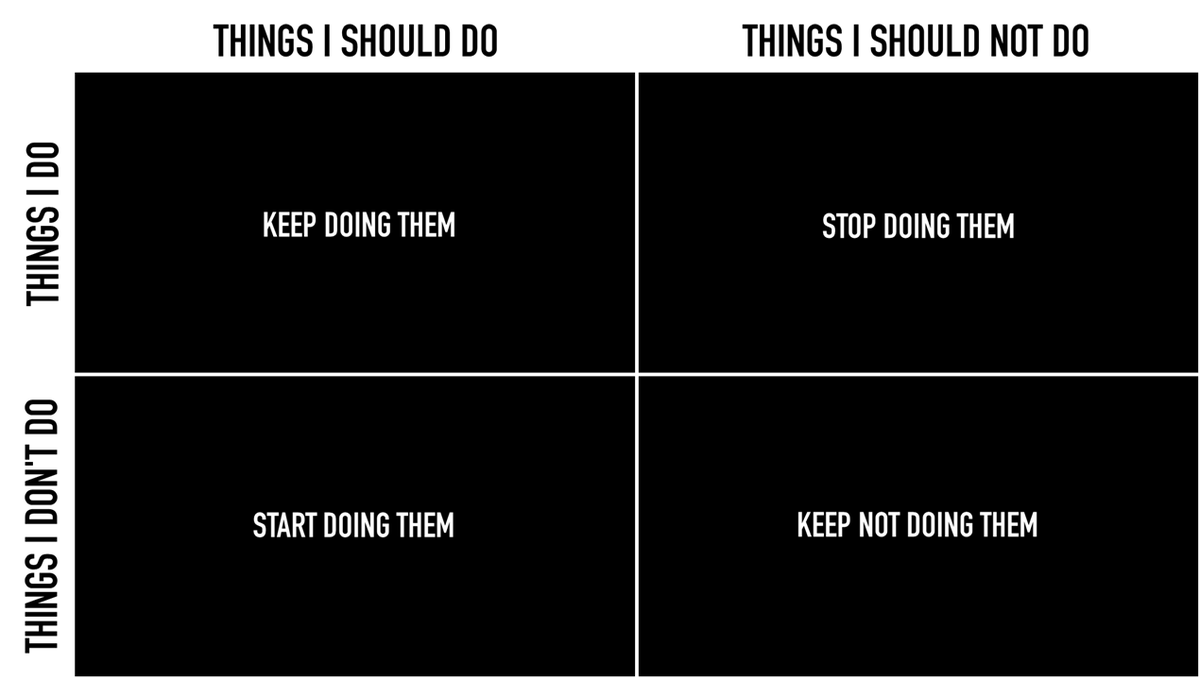Archive for the ‘English’ Category
Conspiracy Theory… explained
Monday, July 15th, 2024AI, the Sad Engineers and the Myth
Friday, March 1st, 2024Great cartoon by Forrest Brazeal (@forrestbrazeal).
As a bonus, the post of the day from François Chollet (@fchollet).
My view of the capabilities of LLMs is probably far below that of the median tech industry person. And yet, the more time passes the more I realize my 2023 views were actually overestimating their future potential and current usefulness.
Parallel to self-driving: circa 2016-2017…
— François Chollet (@fchollet) March 1, 2024
My view of the capabilities of LLMs is probably far below that of the median tech industry person. And yet, the more time passes the more I realize my 2023 views were actually overestimating their future potential and current usefulness.
Parallel to self-driving: circa 2016-2017 my view on the timeline for full-scale self-driving deployment was much more pessimistic than most people in the industry — I was envisioning ~2023, when everyone else targeted 2020 or earlier. And yet, as time passed I started realizing that I was being grossly overoptimistic.
Of course factualism doesn’t sell — if I wanted to be more of an AI influencer I would have to be constantly tweeting about how AI is going to replace all programmers and doctors and so on in less than a year. That sounds exciting and positive, and it gets great engagement!
Instead, I’m giving the impression of being an AI pessimist — despite having being extra-bullish on deep learning and AI for over 10 years straight.
I have been a huge believer in AI’s potential for a long time. Still am today. But I’m allergic to mindless hype.
Cathedral, Mountain and Moon
Tuesday, December 26th, 2023Photographer Valerio Minato shot this amazing triple-alignment involving the Basilica of Superga, the Monviso and the moon.
Three categories of problem solving patterns
Wednesday, November 1st, 2023I think there are broadly three categories of problem solving patterns — recitation, intuition, and reasoning.
Recitation: you simply recognize a known problem and apply the steps you've learned. Like playing a chess opening.
Intuition: in the face of a novel situation, you…
— François Chollet (@fchollet) October 31, 2023
I think there are broadly three categories of problem solving patterns — recitation, intuition, and reasoning.
Recitation: you simply recognize a known problem and apply the steps you’ve learned. Like playing a chess opening.
Intuition: in the face of a novel situation, you (mostly subconsciously) pattern-match it to what you’ve encountered before and you “just know” what to do (sometimes without really understanding why). Could be done completely in autopilot — no awareness required. Like a very experienced chess player seeing the best move in <1s.
Reasoning: you consciously and deliberately analyze a novel situation, using a combination of abstract principles and step-by-step simulation. Like analyzing a chess position and simulating in your mind possible future trajectories.
- Recitation is a database lookup.
- Intuition is interpolative generalization or proximity-based generalization in a continuous space.
- Reasoning is discrete search and discrete planning.
Deep Learning (DL) models do chiefly 2, with some 1 in the mix. Some rare AI systems attempt to do 3.
Humans do a combination of 2 and 3, for the most part (recitation is a thing but is les common). By "volume", most cognition is intuition, but reasoning accounts for the most critical bits.
The term "combination" here is important. Pretty much every conscious human thought is a mix of both intuition and reasoning. There is hardly anything that is pure reasoning or pure intuition (though unconscious processing is in fact pure intuition).
The fact that you do not have to consciously think about grammar and wording when speaking in your native language (though you have to consciously follow the thread of what you
mean) was always evidence that natural language fluency could be handled by intuitive systems (DL).
Meanwhile, making sense (other than via recitation or accident) does require reasoning. Sense and fluency are distinct — obviously.
Team
Friday, August 11th, 2023
A team is not a group of people who work together.
A team is a group of people who trust each other.
This sentence raises the bar to building the team to a personal health project.
It is not about finding the right specialists to address specific health issues, but to find a group of people who are able to trust each other on the global project’s scope.
Of Fatal Flaws
Tuesday, October 11th, 2022I've worked on a number of high-profile failures:
- Lytro lightfield cameras
- Google Glass head-mounted computer
- Google Clips automatic photographerThey all had a fatal flaw. Everyone saw the flaw. But the culture that arose in these teams purposefully ignored the flaw. 1/n
— Warren Craddock (@warren_craddock) October 10, 2022
I’ve worked on a number of high-profile failures:
- Lytro lightfield cameras
- Google Glass head-mounted computer
- Google Clips automatic photographer
They all had a fatal flaw. Everyone saw the flaw. But the culture that arose in these teams purposefully ignored the flaw.
Lytro lightfield camera
The Lytro lightfield camera made truly amazing one-shot 3D pictures from a tiny camera.
What was its flaw?
It could only take pictures of very small subjects, like sushi. For larger subjects, like people, the benefits were lost.
Yet people mostly take pictures of people!
The limitation is due to simple geometry. You need a lens roughly the same size as your subject to get the awesome 3D information. But no one can carry a camera with a meter-wide lens on vacation.
This fatal flaw stared everyone in the face for years, yet no one blinked.
The marketing team found ever more contrived photo compositions that would still eke out a little 3D effect.
The engineers went to work making cameras so big they were moved on custom-built cranes.
The PMs tried to find ever-smaller niche markets.
The culture that arose spontaneously at Lytro suppressed its fatal flaw.
Everyone knew, deep-down, that middle-school geometry doomed the design, but everyone also fervently believed that it could somehow be overcome by sheer will, or hard work, or a stroke of genius.
The theme here is that the cultures that arise around products, methods, and inventions often grow to exclude discussion of their fatal flaws, and instead find elaborate ways to paper over them… to find more and more clever ways to pretend they don’t exist.
Google Glass
Google Glass actually had two fatal flaws:
- It didn’t really do anything very useful.
- You looked stupid while wearing it.
The culture in the Google Glass team grew to completely ignore these flaws, too.
Huge engineering efforts were spent looking for a "killer app" for Glass — some task or situation where Glass would be indispensable.
No one inside Google ever found one, but the culture couldn’t accept its own conclusion.
They released an "Explorer Edition" with great fanfare, and invited developers everywhere to help scour the land for a killer app for Glass.
They never found one, either.
The screen was just too small, and too awkwardly-placed in the corner of your eye.
The engineers spent their days testing Glass with vapid questions like, "Ok Glass, how tall is the Eiffel Tower?" and taking phots of the potted plants on their desks.
Phone notifications are bad enough. No one wanted them on their faces, too.
Glass just wasn’t useful.
Wearing Glass also made you look stupid.
No one ever wore Glass at the office. The devices sat on our desks, plugged into USB, endlessly charging.
The team tried to paper over this flaw, too. They launched an infamous photo spread in Vogue.
Unsurprisingly (at least in retrospect) that also failed to change the reality of Glass’s fatal flaws.
The team never directly acknowledged the fatal flaws at all.
Instead, they trundled on, trying to push an ugly, useless product into a market that clearly didn’t want it.
Google Clips
Finally, I worked on yet another weird camera that had a lot of potential: Google Clips.
It was a tiny camera that you could put anywhere, and it would work as your "automatic photographer."
It would wait for smiles and good lighting, then opportunistically take photos.
It was, honestly, a great idea!
Who wouldn’t want to come home and find a whole reel of awesome photos of your friends, with no effort beyond clipping a camera to your jacket?
Of course, it also had a fatal flaw. The pictures were taken from weird vantage points.
It turns out that humans only like pictures that are taken from the perspective of other humans’ eyes.
It’s a basic feature of our psychology, and it makes perfect sense.
We don’t like the vibe of pictures taken from tabletops or backpacks or lapel pins or dog collars.
To their credit, the UX team at Clips quickly uncovered this fatal flaw. It’s almost a no-brainer, once you start actually looking at pictures taken from uncontrolled perspectives.
Was the project canceled after this fatal flaw was discovered? Of course not!
Instead, the team again tried to paper over the flaw.
They tried to add AI-based perspective correction. They tried view synthesis, so the camera could be virtually "moved" a few inches. They tried ever more elaborate (and ever more intrusive) mounting hardware.
Even those sophisticated techniques were woefully insufficient to fix the fatal flaw at its core.
Then they tried to spruce the product up with ancillary features like time lapses.
Then they brought Clips all the way to market… where it very predictably failed.
The lesson here is simply that all engineering projects develop their own cultures over time.
The cultures often grow to silence or downplay fatal flaws in the product, perhaps because it must be done to keep people marching along together.
If you notice such a fatal flaw in your own project, you’re probably not alone. Your colleagues probably notice it, too.
Yet… it may remain unspoken for years, then one day suddenly define the entire arc of your project.
In your own teams, encourage continual scrutiny of your product’s central flaws.
Encourage people to talk openly about the elephants in the room.
Build culture where people can say, "this is an unsolved problem, and we may not have a viable product if it is not solved."
Without you!
Monday, September 12th, 2022
Even through impenetrable darkness Ukraine and the civilized world see these acts of terrorism clearly.
Deliberate, cynical missile strikes on civilian critical infrastructure. No military targets. The Kharkiv and Donetsk regions are without power. In Zaporizhia, Dnipropetrovsk, and Sumy there are issues with food supply.
Do you still believe that we are one people?
Do you still think that you can frighten, crush, and bend us into submission?
You really understand nothing?
You don’t realize who we are? What we are for? What we are about?
Read my lips:
No gas or no you? No you.
No lights or no you? No you.
No water or no you? No you.
No food or no you? No you.
Cold, hunger, darkness, and thirst – for us these are less frightening and less deadly than your friendship and brotherhood.
But history will arrange everything.
And we will have gas, electricity, water, and food – and we won’t have you.
Ukrainian president Volodymyr Zelensky
40 Useful Concepts You Should Know
Saturday, February 12th, 2022Twitter thread by Gurwinder (@G_S_Bhogal):
My friends, a new MEGATHREAD has arrived!
In 40 tweets I’ll explain 40 useful concepts you should know.
Reading time: ~7 minutes.
Value: potentially a lifetime!Thread:
— Gurwinder (@G_S_Bhogal) February 11, 2022
1. Social Proof:
When unsure how to act, people copy others, outsourcing their decisions. When Sylvan Goldman invented shopping trolleys, people didn’t want to use them because they seemed silly. So Goldman paid actors to use trolleys in his stores, and everyone quickly followed.
2. Twyman’s Law:
The more notable the data, the more likely it’s wrong. This is because errors and data manipulation are far more common than genuine notable (i.e. surprising) results.
Conversely, the more boring the data, the more trustworthy.
3. Spotlight Effect:
We often get the anxious feeling that our every move is being scrutinized by others. The truth is, no one is paying as much attention to you as you are. People are too concerned with how they appear to others to care much about how you appear to them.
4. Relative Privation:
An all-too-common fallacy where people dismiss a concern because something else is worse.
"How can you talk about X when Y is happening?"
By this logic, how can anyone ever talk about anything other than literally the single worst thing in the universe?
5. Expectation Effect:
What you see is influenced by what you expect to see. In one example, researchers Peter & Susanne Brugger showed people this picture. In October, most people saw a duck. During Easter, most people saw a bunny.

h/t: @d_a_robson
6. Shirky Principle:
Institutions will try to preserve the problem to which they are the solution. It’s the best way to ensure their survival and growth. Examples include planned obsolescence and the various “industrial complexes” (military, prison, pharmaceutical, etc).
7. Gibson’s Law:
"For every PhD, there is an equal and opposite PhD."
In matters of law & policy, anyone can find a subject-matter expert who supports their view, because having a PhD doesn’t necessarily make someone right, it often just makes them more skilled at being wrong.
8. Noise Bottlenecks:
Consuming online content makes us feel like we’re learning, but 90% of the content is useless junk: small talk, clickbait, marketing. We’re filling our heads with noise, which is drowning out signal. As such, we feel we’re getting smarter as we get stupider.
9. Belief Perseverance:
Our opinions are like bricks in masonry; each supports & is supported by others. Changing a belief means tearing down all beliefs atop it. Such demolition is hard to bear (easier to live with a skewed building) so people will rarely let that 1 brick budge.
10. Proteus Effect:
In virtual spaces, people become like their avatars. For instance, using a "sexy" avatar tends to make a person more flirtatious. This suggests people’s personalities are largely a performance choreographed to social expectations.
11. Narrative-Market Fit:
News & commentary are products, so they follow market pressures. The more a story fits a fashion or meets a strong consumer demand, the more likely it has been crafted purely for audience engagement, and the less you should trust it.
h/t: @david_perell
12. Fredkin’s Paradox:
The more similar two choices seem, the less the decision should matter, yet the harder it is to choose between them. As a result, we often spend the most time on the decisions that matter least.
13. Cunningham’s Law:
The best way to get the right answer on the internet is not to ask a question, but to post the wrong answer, because people online are more interested in criticizing people than helping them.
14. Audience Capture:
Many influencers make their name by attacking cultural foes. Their growing audience demands ever more attacks, so, like Aztec priests trying to keep the rain flowing, they get trapped in a cycle of offering blood sacrifices to appease unseen entities.
15. Burying The Lede:
If a journalist wants to downplay the most important aspect of a story, they’ll bury it at the bottom of their article and mention it as briefly as possible. They’ll also reframe their headline and narrative to emphasize other aspects, like so:
16. Ben Franklin Effect:
Getting someone who dislikes you to do you a favor can get them to like you, as people’s identities are a story they tell themselves, and if they’re kind to you they need to square their actions with their identity, so they tell themselves they like you.
17. Mismatch Theory:
Moths evolved to navigate by the moon, a good strategy until the invention of electric lamps, which now lead them astray. Equally, humans evolved to be tribal, a good strategy until the Digital Age, where it now leads us to act like polarized goons online.
18. Agent Detection:
For aeons, it was safer to presume an unusual arrangement was designed by an intelligence than that it was natural. This helped us avoid traps. The result is that we’ve evolved to presume anything unusual is designed. Hence creationism & conspiracy theories.
19. Problem Selling:
Problem-solvers take an issue and break it down into small solvable chunks. Problem-sellers (e.g. politicians, the press) do the opposite: bundling many small issues into one big problem that looks insurmountable and terrifying.
h/t: @BoyanSlat
20. Hyperbolic Discounting:
Just as objects far away seem smaller, so do things far into our future. As a result, we are inclined to choose immediate rewards over future ones, even when these immediate rewards are much smaller. To overcome this bias, use @naval’s Compass:
If you can’t decide between two choices, take the path that’s more difficult/painful in the short term. This is because the brain tends to exaggerate the impact of short term pain while downplaying that of long term pain.
21. Generation Effect:
The best way to understand a topic is not to read about it, but write about it. The act of explaining something helps one to connect the dots and commit them to memory far better than the passive act of reading. (One reason I make these megathreads!)
22. Guerrilla Information War:
Conquerors once expanded territory by seizing land, but with the Digital Age it became more efficient to expand virtually by seizing minds. World War III is already happening, but it’s being fought not for land but for clout.
23. Extended Cognition:
Our eyes are no longer our eyes. They’ve been reduced to optic nerves relaying what’s seen by our new sense organs: phones & computers. We now see much more, but by extending our nervous systems outside ourselves, we’ve exposed them to a vulturous world.
24. 48-Hour Rule:
Our minds are in constant flux, and our stated opinions are often just flickers of untamed inspiration that we’d disown upon reflection. So, what if we had a 48 hour grace period to reflect on and retract our words before we were judged?
h/t: @ScottAdamsSays
25. Irony:
On reflection, I no longer think this is a workable plan:
Our minds are in constant flux, and our stated opinions are often just flickers of untamed inspiration that we’d disown upon reflection. So, what if we had a 48 hour grace period to reflect on and retract our words before we were judged?
26. Curse of Dimensionality:
The more detailed you make your data, the less insightful it becomes. Adding just 1 extra parameter to a graph causes the graph’s volume to expand exponentially, dispersing the contained datapoints and negating meaningful associations between them.
27. Reactive Devaluation:
We judge a message by the messenger. In 2002, researchers Moaz et al showed Israelis a Palestine peace plan. When told it was authored by Palestinians, the participants rated it as far less fair than when told it was authored by the Israeli government.
28. Van Restorff Effect:
Things that stand out are more likely to be remembered. As such, news stories that are most unrepresentative of reality tend to be our most persistent representations of reality.
29. Trait Ascription Bias:
We tend to view ourselves as having a fluid personality that adapts to the environment, while viewing others as having fixed personalities. "I acted unreasonably because I was under pressure. He acted unreasonably because that’s just who he is."
30. Wittgenstein’s Ruler
The less you know of the measurer compared to the thing being measured, the less the measure measures the measured and the more it measures the measurer. E.g. if a stranger says most people are leftist, this is a better indicator the stranger is rightist.
31. Via Negativa:
We have a better understanding of what is not than of what is, e.g. we don’t know if studying will make us an expert, but we do know not studying won’t. Therefore, when in doubt, base decisions on avoiding what you should not do instead of doing what you should.
32. Misinformation Effect:
New info affects old memories. Researchers Loftus & Palmer showed people car crash footage, then asked how fast the cars were going when they smashed/collided/bumped/hit/contacted. The estimations depended on the specific verb used in the question:
33. The Fisher Protocol:
Leaders are often detached from the consequences of their decisions. Roger Fisher suggested implanting the country’s nuclear codes into a volunteer. To launch nukes, the President would have to personally kill the volunteer and thereby confront reality.
34. Ideograph:
Tyrants gain and maintain power by claiming to represent a higher authority: God, Nation, Justice, the People. These are intangible abstracts, to which any requirement can be attributed, authorizing the tyrant to do as he pleases. (see also: Glittering Generality)
35. Antiroutine:
To create original output, consume unusual input. Avoid trending videos, NYT bestsellers, widely cited papers. Instead. read ignored texts, plumb the past for forgotten ideas. Step outside the zeitgeist so you can see it with fresh eyes.
h/t: @mmay3r
36. Nocebo Effect:
Harmless substances can make people feel ill if they *think* the substance is harmful. According to a recent meta-analysis, most adverse effects of Covid jabs are not caused by the vaccine but by fear of the vaccine!
37. Gaslighting:
The most misused word. It’s not simply lying, it’s trying to make someone doubt their sanity, like in the film Gaslight.
E.g. Zersetzung was a Stasi psyop to sneak into homes and rearrange furniture and reset clocks to convince dissidents they were going crazy.
38. Idiocy Saturation:
Online, people who don’t think before they post are able to post more often than people who do. As a result, the average social media post is stupider than the average social media user. Worth remembering whenever Twitter dumbassery drives you to despair.
39. The Opinion Economy:
The rise of social media as the primary mode of interaction has caused us to overvalue opinions as a gauge of character. We are now defined more by what we say than what we actually do, and words, unlike deeds, are cheap and easy to counterfeit.
40. Signaling:
Our social behaviors are calibrated to demonstrate our genetic fitness to other humans, primarily to the opposite sex so we can fulfill our biological imperative of procreation.
Essentially, each of us is just a marketing campaign for our DNA.
And that’s it!
If you’ve read this far, you’re my kind of human. Thank you for existing.
And if you want to see more of these threads, let me know with likes/retweets/comments.
Stay sane.
Outside the Box Thinking as Second Order Thinking
Sunday, January 30th, 202250 Cognitive Bias
Sunday, January 30th, 2022Looks like 20 is no longer enough. Does it count as declinism?
Very simple framework for reflecting on goals for 2022
Tuesday, December 28th, 2021The spirits say…
Friday, November 12th, 2021A picture is worth a thousand words
Thursday, October 21st, 2021Urban spatial order
Saturday, June 5th, 2021From paper Urban spatial order: street network orientation, configuration, and entropy (PDF here):
Street networks may be planned according to clear organizing principles or they may evolve organically through accretion, but their configurations and orientations help define a city’s spatial logic and order. Measures of entropy reveal a city’s streets’ order and disorder. Past studies have explored individual cases of orientation and entropy, but little is known about broader patterns and trends worldwide. This study examines street network orientation, configuration, and entropy in 100 cities around the world using OpenStreetMap data and OSMnx.
Attached to… Europe, the country or the region?
Saturday, June 5th, 2021A World of Bees
Wednesday, March 24th, 2021Amazing work on the natural history and phylogeny of bees by Silas Bossert (@thecriticalbee), available at his website thecriticalbee.com.
Research Proposal Flowchart
Friday, March 5th, 2021Nobody Cares About You
Saturday, February 6th, 2021A post by Hugh MacLeod (@hughcards)
The great marketing blogger (and College Professor) Mark Ritson (@markritson) had a superb piece in Marketing Week about how, contrary to all the hotshots that give keynotes at marketing conferences, people hate advertising. All of it.
And yes, the fact that there’s this one ad that you remember fondly from 20 years ago doesn’t prove the opposite, it’s an (extremely rare) exception that proves the rule. Outliers are not reality.
What does this tell us non-advertising, non-marketing types?
It tells us (yet again) the First Law of Business: “NOBODY CARES ABOUT YOU.”
They don’t care about your widget. They don’t care about your passion. Or your family. Or your take on social justice.
What they care about, of course, is themselves, and maybe, just maybe what you can do for them.
This is why the First Law of Business is so useful. Because instead of standing there, preening yourself as you wax poetic, this forces you to think about them instead. Their needs. Their desires. Their hopes and dreams.
Which is a much more useful and productive conversation to have.
Circles, networks and the trust layer
Saturday, February 6th, 2021
A post by Seth Godin (@ThisIsSethsBlog)
The internet clearly has a trust problem. As with most things, it helps to start with the Grateful Dead.
After their incarnation as the Warlocks, they became more than a band. It was a family on the road. There were people who gave up their careers to follow them around, living on buses… they were seeing thirty or forty shows a year. You traded tickets, did favors, built relationships. People in the family knew that they’d be seeing each other again soon.
And then, in 1987, Touch of Grey went to #1 (their only top 40 hit) and it attracted a huge (and different) crowd to the shows. Reports were that the intimacy and trust disappeared.
Glen Weyl points out that the internet was started by three tribes, as different from each other as could be. The military was behind the original ARPA (and then DARPA) that built and funded it. Professors at universities around the world were among the early users. And in San Francisco, a group of ‘hippies’ were the builders of some of the first culture online.
Because each of these groups were high-trust communities, it was easy to conclude that the people they’d be engaging online would be too. And so, as the tools of the internet and then the web were built out, they forgot to build a trust layer. Plenty of ways to share files, search, browse, chat and talk, but no way to engage in the very complicated things that humans do around identity and trust.
Humans have been in tribal relationships since before recorded history began. The word “tribe” appears in the Bible more than 300 times. But the internet isn’t a community or a tribe. It’s simply a technology that amplifies some voices and some ideas. When we don’t know who these people are, or if they’re even people, trust erodes.
When a site decides to get big fast, they usually do it by creating a very easy way to join, and they create few barriers to a drive-by anonymous experience. And when they make a profit from this behavior, they do it more. In fact, they amplify it.
Which makes good business in the short run, but lousy public policy.
Twenty years ago, I wrote that if someone goes into a bank wearing a mask (current pandemic aside) we can assume that they’re not there to make a deposit.
And now we’re suffering from the very openness and ease of connection that the internet was built on. Because a collection of angry people talking past each other isn’t a community. Without persistence of presence, some sort of identity and a shared set of ideals, goals and consequences, humans aren’t particularly tempted to bring their best selves to the table.
The system is being architected against our best impulses. Humans understand that local leadership, sacrifice and generosity build community, and that fights and scandals simply create crowds. Countless people are showing up, leading and pushing back, but algorithms are powerful and resilient, and we need some of them to be rebuilt.
Until there’s a correlation between what’s popular or profitable and what’s useful, we’re all going to be paying the price.

